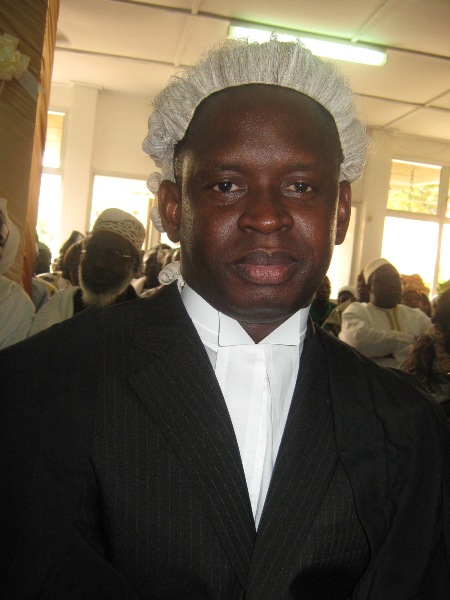
As part of efforts to promote and protect the fundamental human rights of the citizenry, and to combat corruption and graft in The Gambia, the Ministry of Justice and Attorney General’s Chambers has taken what could be described as a giant stride by establishing a Human Rights Unit at the Ministry.
This development was confirmed to The Point yesterday by Pa Harry Jammeh, Solicitor General and Legal Secretary at the Ministry of Justice, during an exclusive interview with this reporter in his office.
According to Solicitor General Jammeh, the Attorney General’s Chambers and Ministry of Justice is an organ responsible for the enforcement and protection of fundamental rights as enshrined in Chapter 4 of the 1997 Constitution. The initiative, he added, seeks to further the protection and promotion of human rights in the country.
“The unit would work towards actualizing the Government’s key obligation as the primary bearer of human rights, whilst at the same time advocating for rights holders to claim their rights. The boarder objective would include inter alia playing an advisory role to the government and parliament in giving opinions and making recommendations on all issues related to the promotion and protection of human rights. The unit will also undertake sensitization activities with members with regard to the protection of fundamental rights,” Jammeh, a former magistrate, told this reporter.
He also stated that it is envisaged that the unit would gradually metamorphose into a National Human Rights Commission, adding that related to the issue is the formation of an Anti-corruption Agency. The main objective, Pa Harry noted, would be to combat the menace of graft in the country.
“I am happy to report that a draft bill is already available for review,” he said.
Meanwhile, Pa Harry on Wednesday also announced the availability of the Revised Edition of Laws of The Gambia 2009.
According to Mr. Jammeh, “there should be a revised edition of the Laws of The Gambia every ten years. That is the law.
“The last revised edition prepared under the authority of the Law Revision Act, 1990, came into force on 1st July 1990 some 20 years ago. Twenty years have, therefore, lapsed since the last publication of a Revised Edition of the Laws of The Gambia. All the new laws, including even the 1997 Constitution of The Gambia, 1997 and amendments enacted and subsidiary legislation published during the period (since 1990) were hitherto to be found scattered in supplements to gazettes and legal notices accumulating year after year in unincorporated statutory provisions.”
This, he went on, “no doubt must have resulted in the unsatisfactory situation where the law became increasingly inaccessible to all, including interested lay persons and or, even lawyers.
“The published volumes of the Laws of The Gambia, 1990, therefore, ceased to be as authoritative, clear and comprehensive as they should be.
“It is, therefore, in recognition of this fact and in pursuance of a resolution passed by the National Assembly on 5th October, 2010 that His Excellency the President in exercise of the powers conferred on him, proclaimed and ordered that the revised edition of the Laws of The Gambia 2009 shall come into operation on the 1st September, 2009,” he declared.
On behalf of the Ministry of Justice and

